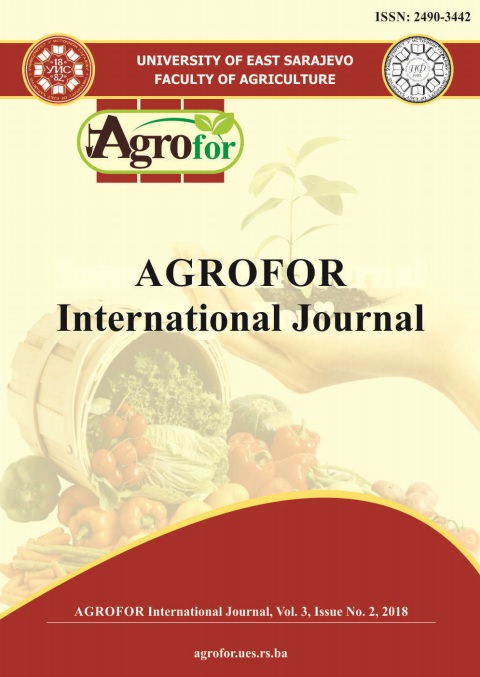ORGANIC AGRICULTURE AT HIGH ALTITUDES: EXPERIMENTAL ORGANIC GARDEN IN ILOVICE, BOSNIA AND HERZEGOVINA
DOI:
https://doi.org/10.7251/AGRENG1802032MAbstract
Agriculture at high altitudes is a challenge, especially in terms of organic vegetable
production. In mountainous regions, most of the arable land is at high altitude,
which significantly affects agricultural production, limiting the number of crops.
This research was carried out in order to verify the possibility of growing a wide
range of vegetables and herbs in these regions. The experimental plot (4500 m2)
was formed in the village Ilovice (municipality Trnovo, Bosnia and Herzegovina),
at 950 m above sea level. After the analysis of the soil fertility, the organic
production of vegetables, some spices and medicinal herbs was designed in the
open field, without additional fertilization. Some typical Mediterranean species,
such as artichoke and kale, were also planted. Some of the most important
principles of organic agriculture - beneficial organisms, companion crops and
intercropping - were fully met in the garden. Finally, although the production on
the experimental plot took place at high altitudes, the health of plants, the
appearance of fruits and the yield, confirmed the possibility of successful organic
vegetable production in such regions. In addition, the experimental organic garden
in Ilovice is a place for practical education of those interested in organic
agriculture. This is of great importance for conducting applied research, acquiring
new knowledge and helping producers to promote organic agricultural production,
especially in less developed regions. To the best of our knowledge, this is the first
study that carried out in Bosnia and Herzegovina, where the possibility of growing
a wide range of plant species, at such high altitudes, has been practically verified.

